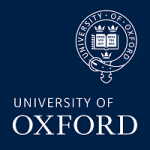项目介绍
About the course
The DPhil in Archaeology provides students with the opportunity to pursue substantial independent research on their own, over a wide range of periods and subjects, including British, European, African, and Asian archaeology, and in theoretical aspects of the discipline.
The DPhil is a full-time degree that is examined only by thesis and there is no formal course of instruction. Students are encouraged to develop their own topic under their own research project under the guidance of their supervisors, who are experts in their field of research. Projects which cross disciplinary boundaries, for example in archaeological science or cultural heritage, are welcome. Suggested projects and recently completed DPhil projects are listed on the School website.
You are also encouraged to attend lectures and participate in research seminars, particularly the numerous and wide-ranging weekly seminar series organised within the cutting-edge research groups; these also often provide opportunities for you to present your own work. You are strongly encouraged to undertake fieldwork, which, if appropriate, can often be in relation to one of the department’s projects.
Supervision
For this course, the allocation of graduate supervision is the responsibility of the School of Archaeology and it is not always possible to accommodate the preferences of incoming graduate students to work with a particular member of staff. Under exceptional circumstances a supervisor may be found outside the School of Archaeology.
While the degree of contact varies depending on individual circumstances, students generally develop a close relationship with their supervisors.
Assessment
All students will be initially admitted to the status of Probationer Research Student (PRS). By the fourth term as a PRS student you will be expected to apply for transfer of status from Probationer Research Student to DPhil status.
A successful transfer of status from PRS to DPhil status will require a formal assessment though the submission of written work and an interview. Students who are successful at transfer will also be expected to apply for and gain confirmation of DPhil status within seven terms of admission, to show that your work continues to be on track.
Both milestones normally involve an interview with two assessors (other than your supervisor) and therefore provide important experience for the final oral examination. At each stage you will also make a short formal presentation of your research at one of the doctoral student symposia organised by the School of Archaeology, which will help you to develop your presentation skills at an early stage of your career.
You will be expected to submit an original thesis of up to 80,000 words within three or at the most four years from the date of admission. Students can apply to submit the thesis as a collection of publishable papers. Successful doctoral theses must, among other things, display evidence of substantial and original research, lucid and scholarly presentation and a sound knowledge of the general field within which the thesis falls. To be successfully awarded a DPhil you will need to defend your thesis orally (viva voce) in front of two appointed examiners.
Graduate destinations
Many graduates from the DPhil in Archaeology are successful in obtaining academic posts at universities in the UK, USA and elsewhere, while others engage in postdoctoral research, or go on to positions within museums. Others find careers elsewhere in education, commercial archaeology, and the heritage industry.
Changes to this course and your supervision
The University will seek to deliver this course in accordance with the description set out in this course page. However, there may be situations in which it is desirable or necessary for the University to make changes in course provision, either before or after registration. The safety of students, staff and visitors is paramount and major changes to delivery or services may have to be made in circumstances of a pandemic (including Covid-19), epidemic or local health emergency. In addition, in certain circumstances, for example due to visa difficulties or because the health needs of students cannot be met, it may be necessary to make adjustments to course requirements for international study.
Where possible your academic supervisor will not change for the duration of your course. However, it may be necessary to assign a new academic supervisor during the course of study or before registration for reasons which might include illness, sabbatical leave, parental leave or change in employment.
For further information please see our page on changes to courses and the provisions of the student contract regarding changes to courses.
录取要求
-
a master’s degree in archaeology; and
-
a first-class or strong upper second-class undergraduate degree with honours in any relevant subject.
联系方式
电话: +44 1865 270000相关项目推荐
KD博士实时收录全球顶尖院校的博士项目,总有一个项目等着你!





